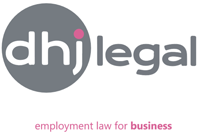
In a recent (2022) case the EAT held that the wording in a waiver of claims was wide enough to cover a claim brought after the waiver had been signed by both parties.
The case involved a COT3 wording with a fairly standard waiver, as follows:
the payment … is accepted in full and final settlement of all or any costs, claims, expenses or rights of action of any kind whatsoever, wheresoever and howsoever arising under common law, [statute] or otherwise (whether or not within the jurisdiction of the employment tribunal) which the claimant has or may have against the respondent or against any employee, agent or officer of the respondent arising directly or indirectly out of or in connection with the claimant’s employment with the respondent, its termination or otherwise
Added to the end of the waiver was the following wording:
“This paragraph applies to a claim even though the claimant may be unaware at the date of this agreement of the circumstances which might give rise to it or the legal basis for such a claim.”
The EAT decided that a claim that was brought for alleged actions that took place before the waiver was signed which the claimant had been unaware of was covered by the waiver. Its view was reinforced by the last phrase in the waiver, by which it was intended to apply even if the claimant was unaware of the legal basis for such a claim. The EAT’s conclusion was based on the construction of the clause itself and it was irrelevant if the parties knew at the date of signing the COT3 that the claimant may have been considering bringing another claim.
Case: Arvunescu v Quick Release (Automotive) Ltd [2022] EAT 26,
